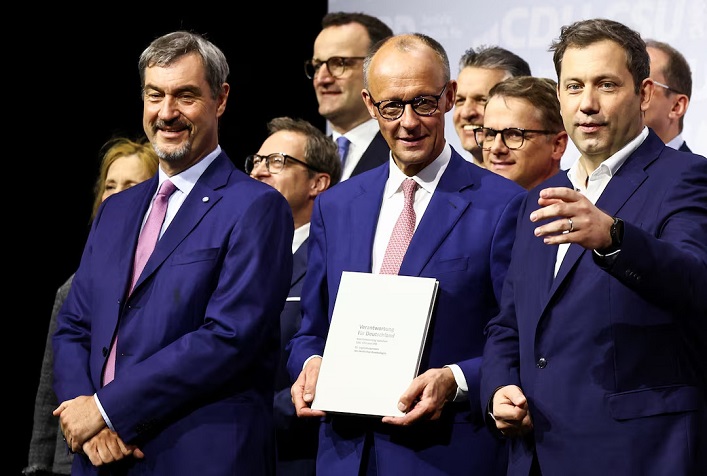The leaders of Germany’s Social Democratic Party have signed a coalition agreement with the conservative blocs Christian Democrats and Christian Social Union. This has opened the way for the appointment of ministers in the new German government and a vote on the candidacy of the leader of the CDU party, Friedrich Merz, for the position of chancellor.
The agreement notes that Germany is now facing the greatest security threats since the Cold War, particularly from Russia. The coalition emphasizes the need to strengthen European defense capabilities.
A special place in the coalition agreement is given to Germany’s position on Ukraine. The word “Ukraine” itself is mentioned in the agreement 17 times. Germany recognizes Ukraine not just as a victim of aggression, but as a “key factor in European security”, which also fights for the freedom and stability of all of Europe. The coalition promises to support Ukraine “from a position of strength”, meaning without compromise with Russia. Assistance to Ukraine includes military, political, economic, and civilian support. Particular attention is paid to considering mechanisms through which frozen Russian assets could be used for the benefit of Ukraine (reparations).
Germany also confirms its commitment to the prospect of Ukraine’s membership in NATO and advocates for EU enlargement – particularly for Ukraine, Moldova, and the Western Balkans.
